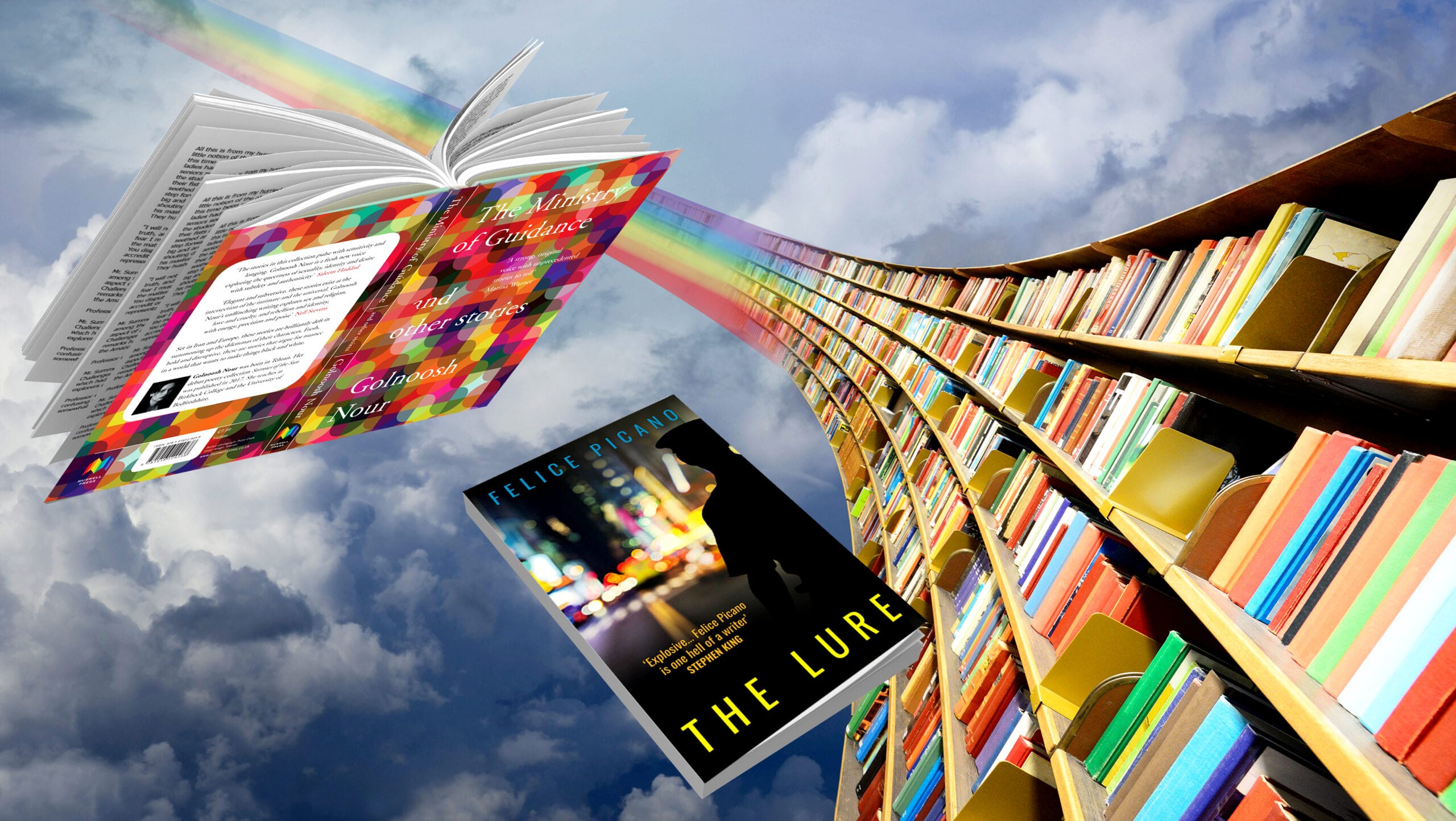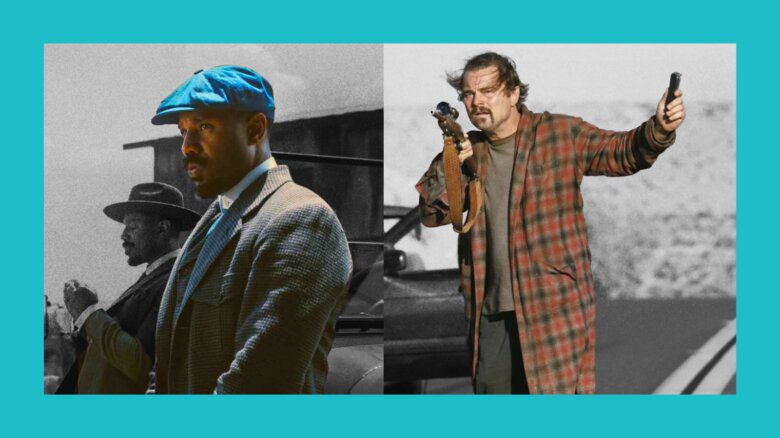Matthew Bates is editor-at-large at the independent U.K. publisher Muswell Press, where he is responsible for the press’s LGBTQ literature list featuring both overlooked queer classics and new works of fiction and nonfiction. Recent reissues include Felice Picano’s 1979 thriller The Lure and For Your Convenience, a 1937 guide to London’s public washrooms—subtext alert!—by Paul Pry (a.k.a. Thomas Burke, author of Limehouse Nights).
Bates began his career in publishing 34 years ago, at the age 16, when he left school and got a job at the popular book retailer W.H. Smith. He eventually worked his way up to become a fiction buyer there. Bates left W.H. Smith two years ago to study English literature and creative writing at Birkbeck, University of London. Xtra spoke with Bates about Muswell’s LGBTQ catalogue, lost masterworks and the ever-evolving list that makes up the queer and trans literary canon.
What was your first queer-book love?
When I first started working, in the late 1980s, there was a real energy and focus on publishing underrepresented voices—independent publishers like Virago, Pandora Press, Gay Men’s Press and Women’s Press were where the interesting books were to be found. Like many other gay men of that time, my first gay novel reading experience was Edmund White’s A Boy’s Own Story. Reading it made me feel represented, validated and much less alone. I also read a lot of Jeanette Winterson and Jane Rule, who has been rather forgotten, sadly, at least in the U.K. Her novel, This Is Not for You, moved me deeply.
Why did you rerelease Felice Picano’s 1979 thriller The Lure as the first title in Muswell’s new LGBTQ writing list?
It was Felice himself who suggested it! It seemed only right that we should launch the list with a classic novel from an author who has such pedigree. Muswell Press is proud and delighted to be re-issuing the novel and acknowledging Felice’s contribution to gay literature.
Does the novel have anything special to say about our world today?
I think it is an interesting novel because it crosses fictional territories—it is both a classic, page-turning thriller and a gay novel, but resists being classified as either one or the other. So, from a writing perspective, it is an early example of successful, cross-genre fiction. I think its other quality is its depiction of New York in the 1970s. As a contemporary document of gay life in that period, it makes for a fascinating read considering how the city has changed since then, especially in relation to its queer communities.
What other reissues feel contemporary?
In fall 2020, we’ll be republishing Max Schaefer’s Children of the Sun. It was first published in 2011 so it is still a fairly recent publication but one which absolutely deserves more exposure. The premise of the novel is highly original and based on painstaking research conducted by the author concerning a young gay man in 1980s Britain who becomes involved in a far-right group. This contradiction makes for a tough, visceral and thought-provoking read.
What’s next from Muswell?
In April 2020 we will publish The Ministry of Guidance, the debut novel by Iranian poet Golnoosh Nour. It’s a bold, fresh and disruptive series of stories that chart the queer experience through a culturally diverse lens in which sexual fluidity abounds. Noor is an acute observer of how the human spirit fights repression, and the stories are darkly humorous and playful.
“Talsman’s hero(ine)… is, to quote from the novel, ‘the sloppiest slut who ever slinked down a side street.’”
Later in the year we are reissuing an American novel by William Talsman called The Gaudy Image. It was first published in Paris in 1958 but its explicit account of New Orleans gay life so shocked customs officials that they seized the novel and confiscated it. Neglected, unread and, for the main, sadly forgotten, it nevertheless has achieved a quiet cult status and been praised by critics for its “refreshing honesty and frankness, its playful humour and startling bursts of wit and poetry.” The novel brings the gay underworld of New Orleans vividly to life through Talsman’s hero(ine), Thomas Schwartz—or “Titania” as he’s known by his friends—who is, to quote from the novel, “the sloppiest slut who ever slinked down a side street.” Crude, irreverent, tragic and heart-breaking, it has drawn comparisons to James Baldwin, Jean Genet and Tennessee Williams. I really do believe it is a lost queer classic and I’m very excited about the reissue.
What queer and trans books from the last 10 years do you see making their way into the literary canon?
I think Garth Greenwell’s What Belongs to You from 2016 should be regarded as a classic work of gay fiction, if it isn’t already. It’s such a painful novel in many ways, and that fictional examination of the protagonist’s pain (and indeed shame, in the middle section of the novel) is compelling and heart-breaking. The character of Mitko in the novel is also brilliantly drawn. In Mitko, one can trace shades of E.M. Forster’s Alec Scudder from Maurice and Baldwin’s Giovanni, which all lend to the novel’s intertextuality. Juliet Jacques’ Trans from 2015 is an important book that bravely combines a personal story of transformation with more universal questions about identity that could apply to any reader.
Can you talk about some of your favourite queer books and how they might bridge or illuminate the divisions that can exist among LGBTQ communities?
My own favourite queer writing reflects the generation I was born in. I came out as a gay man in the late 1980s. I was 16, so fairly young. The scene I entered was exciting, friendly and still hedonistic but it was also scarred by the trauma of AIDS. Many of my favourite novels deal with this period and its aftershocks: Dancer from the Dance (Andrew Holleran), Ready to Catch Him Should He Fall (Neil Bartlett), The Farewell Symphony (Edmund White), Such Times (Christopher Coe). We may move on from those devastating times, but we must never, ever forget them. Novels like these remind and inform younger readers of the need for love, compassion and solidarity.
To look back further, though, Giovanni’s Room (Baldwin), Maurice (Forster) and Patricia Highsmith’s The Price of Salt (later published as Carol) are important, seminal texts which allow readers to consider the difficulties of negotiating love and sex in previous generations. Times may have changed, but the strategies employed in those novels can still illuminate those struggling through repression or difficulties today.
If readers are looking for more recent novels, then I’d recommend two recent works My Cat Yugoslavia and Crossing by Pajtim Statovci, Guapa by Saleem Haddad, Lie with Me by Philippe Besson and, especially, Tomasz Jedrowski’s Swimming in the Dark. The latter is a beautifully constructed debut novel set in 1980s Poland which interweaves past and present. At its heart is a very moving and realistic story of first, same-sex love. One of the key themes that the novel examines is the ability of some individuals to adapt and become complicit within the repressive society that they are born into and how others are unable to do so and resist in order to realize their true self and reach for personal happiness.
Elsewhere, I’m a huge fan of Deborah Levy. Her characters are often sexually fluid, and her works are often open-ended, allowing for multiple outcomes for the protagonists and pause for thought from the reader. The world Levy portrays in her works is a perplexing one which is always asking questions about both her characters and readers. Everything is gloriously tilted in Levy’s fictional landscapes. I’d recommend Hot Milk or her short story collection Black Vodka.
This interview has been edited for length and clarity.


 Why you can trust Xtra
Why you can trust Xtra


